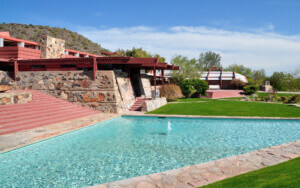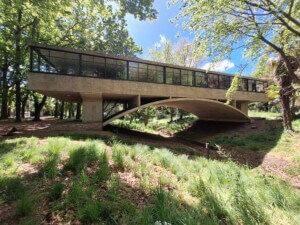As first reported by the Phnom Penh Post, plans to build a nearly 200-acre resort complex at the literal doorstep of Cambodia’s sacred Angkor archaeological site have been rejected by the country’s Ministry of Culture and Fine Arts.
Dubbed Angkor Lake of Wonder, the $350 million development project spearheaded by Hong Kong-listed gaming and entertainment company NagaCorp would have risen, as proposed, roughly just 1,600 feet outside of Angkor’s outer southern boundaries in northwest Cambodia’s Siem Reap province. NagaCorp had struck a 50-year lease deal with the Cambodian government to built the resort in May 2020, leading to elevated concern from local and international conservation groups, including UNESCO and the New York-headquartered World Monuments Fund (WMF). Spread across 150 square miles, the Angkor archeological park is famed for its 12th-century Buddhist temple complex, Angkor Wat, and a bevy of other marvels of ancient architecture and engineering. It was declared a UNESCO World Heritage Site in 1992.
Already Cambodia’s top tourist destination, Angkor would have found a new and potentially detrimental neighbor in Angkor Lake of Wonder, a Khmerfied Disneyland of sorts complete with multiple hotels, an indoor digital theme park, expansive botanical gardens, a network of touristic canals, and a “Siem Reap China Town” entertainment and retail district. Gensler and Steelman Partners, a Las Vegas-based architecture firm specializing in splashy integrated resorts, were reportedly tapped to design the Angkor-adjacent complex. Notably, Steelman Partners designed NagaCorp’s gigantic and ever-expanding NagaWorld luxury hotel-casino complex in the Cambodian capital of Phnom Penh.
The first phase of Angkor Lake of Wonder was set to be completed in 2025.
As noted in a press release applauding the decision by the government to reverse course and strike down the proposed development, the WMF noted that the plans “risked diminishing an inimitable monument to Cambodian culture tremendously important for the local community and whose significance is recognized the world over.”
The WMF, which has been engaged in myriad conservation projects with local residents at Angkor for more than three decades, elaborated:
“Exacerbating the impact of tourism, depleting natural resources, and undermining the unique sense of place of this ancient wonder, the proposed theme park would have greatly undermined the progress made over decades to recover the legacy of this incredible civilization and restore a sense of pride and identity to the nation after a dark period in its history. The reversal of the development plans is a welcome decision for the protection of Angkor, the local communities who steward the archaeological park, and all who derive meaning from this extraordinary site.”
Nikkei Asia described the blocking of Angkor Lake of Wonder as a “rare blow” for NagaCorp, as the company is “generally seen as being on good terms [with] the government.”
“The proposed project by Naga has been rejected,” Sum Map, secretary of state for the ministry, told Nikkei Asia in a statement. “Future proposed development activities from Naga or other public or private companies need to be in compliance with World Heritage values.”
NagaCorp has vowed to revisit its proposal and continue to move ahead but with what chairman Tim McNally has referred to as “fresh plans.”
“We have already acknowledged the prior concerns expressed by UNESCO,” McNally told GGRAsia in a statement. “As a result we will continue to develop fresh plans that are acceptable to achieve the objective of creating tourism venues and at the same time respecting the historical and spiritual wonder of the Angkor Wat site.”
“We listen carefully and particularly and coordinate closely with key representatives of the government of Cambodia,” McNally added. “Although I cannot provide a timetable at this time I can assure you we will continue to develop an acceptable plan for this area that will accommodate and promote tourism in the best interest of the country.”











